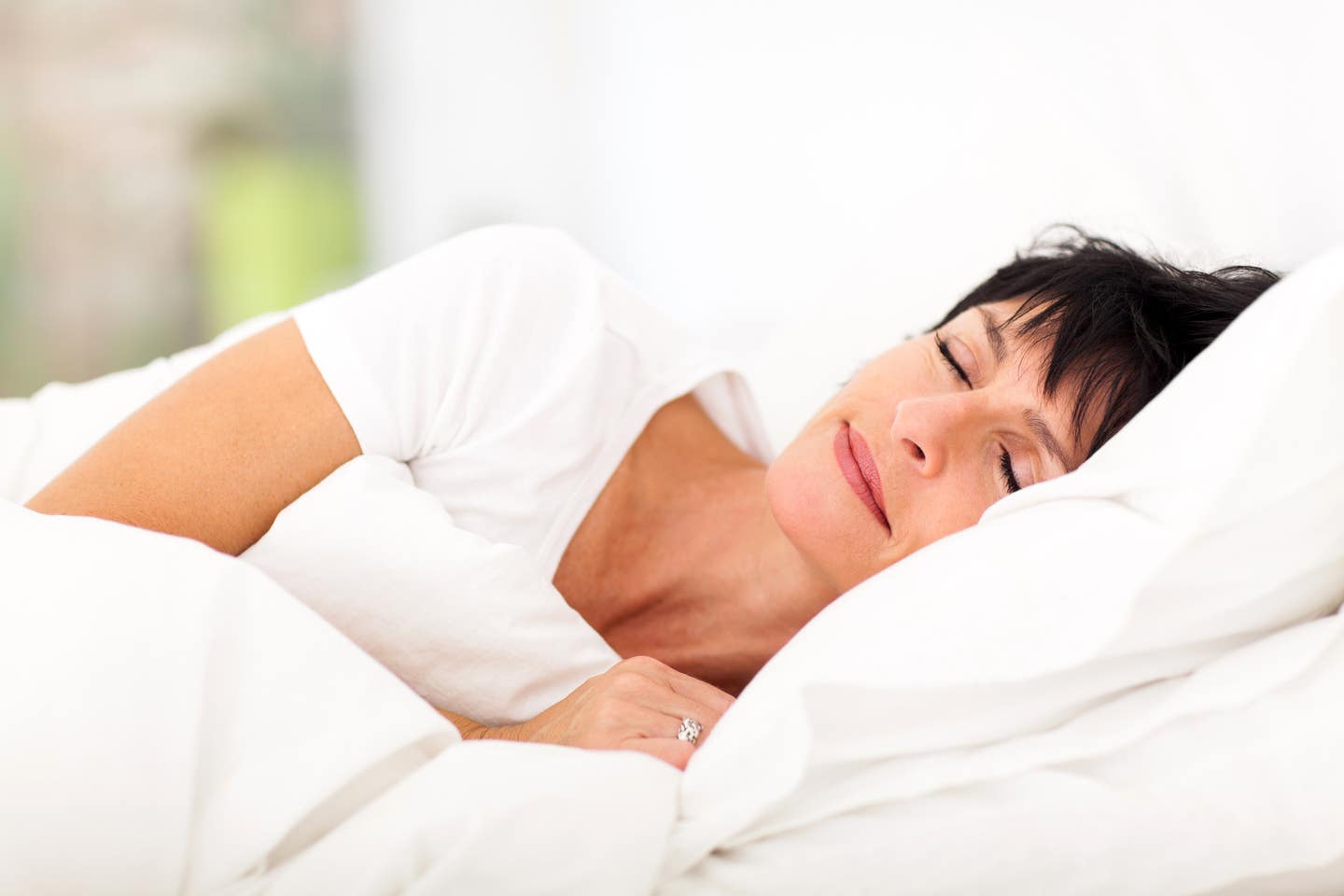People sleep the least from early 30s to early 50s, study finds
Sleep duration declines in early adulthood until age 33, and then picks up again at age 53, according to new findings.

[Jan. 5, 2023: Henry Killworth, University College London]
People sleep less in mid-adulthood than they do in early and late adulthood. (CREDIT: iStock Photos)
People sleep less in mid-adulthood than they do in early and late adulthood, finds a new study led by UCL, University of East Anglia and University of Lyon researchers.
Sleep duration declines in early adulthood until age 33, and then picks up again at age 53, according to the findings published in Nature Communications.
The study, involving 730,187 participants spread over 63 countries, revealed how sleep patterns change across the lifespan, and how they differ between countries.
Study participants were playing the Sea Hero Quest mobile game, a citizen science venture designed for neuroscience research, created by Deutsche Telekom in partnership with Alzheimer’s Research UK, UCL, UEA and game developers Glitchers. Designed to aid Alzheimer’s research by shedding light on differences in spatial navigational abilities, over four million people have played Sea Hero Quest, contributing to numerous studies across the project as a whole.
In addition to completing tasks testing navigational ability, anyone playing the game is asked to answer questions about demographic characteristics as well as other questions that can be useful to neuroscience research, such as on sleep patterns.
Related Stories
The researchers, led by Professor Hugo Spiers (UCL Psychology & Language Sciences) and Dr Antoine Coutrot (CNRS, University of Lyon) found that across the study sample, people sleep an average of 7.01 hours per night, with women sleeping 7.5 minutes longer than men on average.
They found that the youngest participants in the sample (minimum age 19) slept the most, and sleep duration declined throughout people’s 20s and early 30s before plateauing until their early 50s and increasing again. The pattern, including the newly-identified key time points of age 33 when declining sleep plateaus and 53 for sleep to increase again, was the same for men and women, and across countries and education levels.
The researchers say the decline in sleep during mid-life may be due to demands of childcare and working life.
Wayfinding task: spatial ability was quantified with the Sea Hero Quest (SHQ) app. Participants completed 2 training levels that did not require spatial ability, as the target was visible from the starting point. They also completed 4 wayfinding levels, where the participants were asked to memorize a map, and navigate as quickly as possible toward 3 checkpoints in a set order. (CREDIT: Nature Communications)
Professor Spiers said: “Previous studies have found associations between age and sleep duration, but ours is the first large study to identify these three distinct phases across the life course. We found that across the globe, people sleep less during mid-adulthood, but average sleep duration varies between regions and between countries.”
People who report sleeping the most are in Eastern European countries such as Albania, Slovakia, Romania and the Czech Republic, reporting 20-40 minutes extra sleep per night and the least in South East Asian countries including the Philippines, Malaysia and Indonesia. People in the United Kingdom reported sleeping slightly less than the average. People tended to sleep a bit less in countries closer to the equator.
Distribution of reported sleep duration across countries. (CREDIT: Nature Communications)
The researchers found that navigational ability was unaffected by sleep duration for most of the sample, except for among older adults (aged 54-70) whose optimal sleep duration was seven hours, although they caution that the findings among older adults might be impacted by underlying health conditions.
Tips for Better Sleep
Good sleep habits (sometimes referred to as “sleep hygiene”) can help you get a good night’s sleep.
Some habits that can improve your sleep health:
Be consistent. Go to bed at the same time each night and get up at the same time each morning, including on the weekends
Make sure your bedroom is quiet, dark, relaxing, and at a comfortable temperature
Remove electronic devices, such as TVs, computers, and smart phones, from the bedroom
Avoid large meals, caffeine, and alcohol before bedtime
Get some exercise. Being physically active during the day can help you fall asleep more easily at night.
For more information on sleep eduction, check out the resources here: http://www.sleepeducation.org/essentials-in-sleep/healthy-sleep-habits
Note: Materials provided above by University College London. Content may be edited for style and length.
Like these kind of feel good stories? Get the Brighter Side of News' newsletter.



